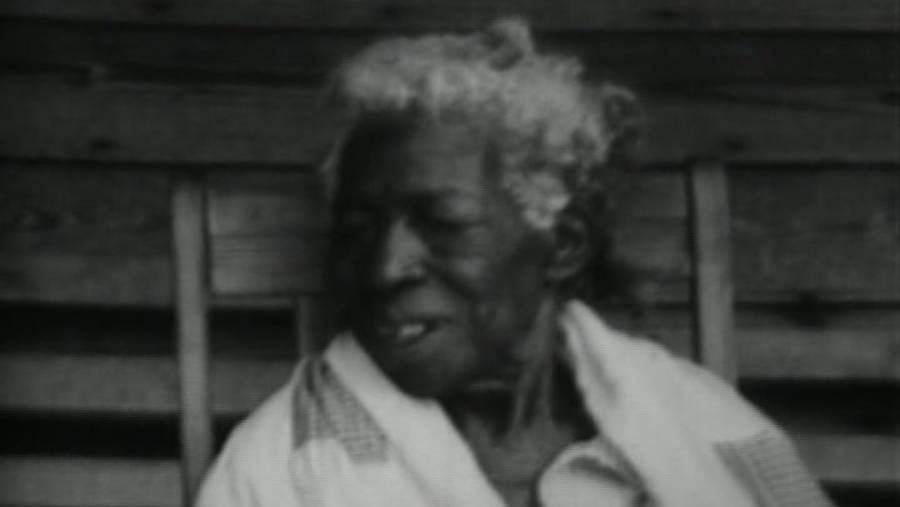Researcher Identifies the Last Known Survivor of the Transatlantic Slave Trade
Matilda McCrear was just 2 when she was captured and brought to Alabama on the “Clotilda”
:focal(380x121:381x122)/https://tf-cmsv2-smithsonianmag-media.s3.amazonaws.com/filer/19/4a/194a3435-712d-424f-ad2d-09ee04ccc14b/clotilda.jpg)
In July 1860, a ship called the Clotilda docked off the shore of Mobile, Atlanta, under the cover of darkness. The 110 men, women and children onboard, all kidnapped from West Africa, were distributed to slaveholders despite the fact that Congress had outlawed the international slave trade more than 50 years earlier.
The Clotilda was, in fact, the last documented ship to transport people from Africa to slavery in the United States. And now, reports Sean Coughlan for BBC News, a British historian has identified the ship’s last known survivor.
Hannah Durkin of Newcastle University used genealogical data and a single newspaper interview to piece together the story of Matilda McCrear, who died in 1940 at the age of 81 or 82—three years after the death of Redoshi, a woman whom the historian had previously identified as the last survivor of the transatlantic slave trade.
Describing her research in the journal Slavery & Abolition, Durkin notes that McCrear does not seem to have appeared in any film footage; nor was she mentioned in any books. No obituaries mark her death. Instead, Durkin relied largely on an interview that appeared in the Selma Times-Journal after McCrear tried to claim compensation as a Clotilda survivor in 1931. The article, which Durkin discovered while researching Redoshi, is problematic; as Durkin notes, it was written by a white woman who “reveals a dismissive attitude to McCrear that elides much of her family’s suffering.” But the piece nevertheless offers key insight into McCrear’s often-heartbreaking biography.
She belonged to the Yoruba people of West Africa and was just 2 years old when she was captured by traders and brought on board the Clotilda along with her mother, Gracie; sister Sallie; and two other unnamed sisters. Two of her brothers were left behind in Africa, providing “rare insight into the Middle Passage as a site of maternal loss,” according to Durkin.
Upon their arrival in the United States, McCrear, Sallie and Gracie were purchased by slaveholder Memorable Walker Creagh; her two other sisters were sold to a different owner, per Newcastle University, and McCrear never saw them again. Gracie was sold to Creagh as the “wife” of a Clotilda survivor named Guy, though it is likely that their association “was random and part of a wider practice of selling off Clotilda survivors as ‘breeding pairs,’” writes Durkin.

Because McCrear was so young during the journey from Africa to America, most of her knowledge of that time period was passed down from her mother. But she had a distinct memory of fleeing into a swamp with her sister to escape her captors and hiding for several hours until the overseers’ dogs sniffed the girls out. McCrear would have been 3 years old at the time, her sister 11. That they went “to such lengths to escape captivity,” according to Durkin, “brings to light the miserable treatment that they endured even as young children and shows how profound was their sense of dislocation and desperation to return home.”
McCrear was still a young child when the 13th Amendment, which abolished slavery, was adopted in 1865, but her family continued to work as sharecroppers, likely of cotton, for a landowner. As McCrear grew older, she displayed a determined, even defiant streak. She changed her last name from that of her former owner—Creagh—to McCrear; wore her hair in a traditional Yoruba style; and, though she never married, had a decades-long relationship with a white German man. Together, they had 14 children.
“McCrear’s long-term relationship with Schuler should be read as a major act of resistance to racist laws forbidding black and white people from marrying that were in place throughout the South until the U.S. Supreme Court declared them unconstitutional in ... 1967,” writes Durkin.
When she was in her 70s, McCrear traveled 15 miles from her rural cabin to the County Courthouse in Selma, Alabama, hoping to obtain financial assistance as a Clotilda survivor. She knew that Cudjo “Kossola” Lewis, another survivor of the ship, had received compensation, and asked that both she and Redoshi be granted similar benefits. Her plea, however, was dismissed, and she ultimately died in poverty.
Johnny Crear, McCrear’s 83-year-old grandson, tells Newcastle University that he was completely unaware that his grandmother had been on the Clotilda prior to Durkin’s research.
“Her story gives me mixed emotions because if she hadn’t been brought here, I wouldn’t be here,” he says. “But it’s hard to read about what she experienced.”
Researchers discovered the remains of the Clotilda along the Mobile River last year. As Allison Keyes reported for Smithsonian magazine in April 2019, the ship’s captain, William Foster, had ordered it taken upstream, burned and sunk to conceal evidence of his crew’s illicit actions. Though the Clotilda’s survivors were freed by Union soldiers in 1865, they were unable to raise enough funds to return to Africa. Instead, the men and women pooled their wages and purchased a plot of land nearby. Dubbed Africatown, the society was rooted in its residents’ “beloved homeland,” according to Smithsonian.
“I knew what that ship represents, the story and the pain of the descendant community. I’ve heard the voices; I can look them in the eye and see the pain of the whole Africatown experience over the past hundred plus years,” Kamau Sadiki, a diver involved with the Smithsonian’s National Museum of African American History and Culture’s Slave Wrecks Project, told Smithsonian last year. “They have been very resilient. The Clotilda should be known by everyone who calls themselves an American because it is so pivotal to the American story.”